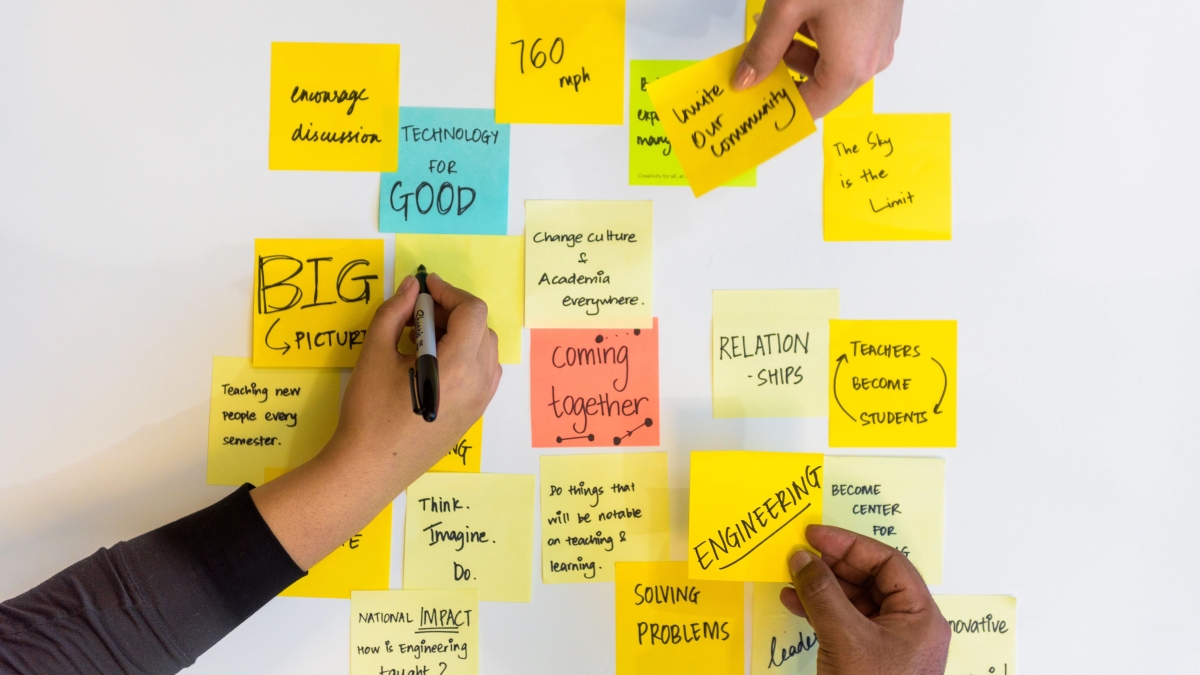New direction of Lincoln Center brings co-creative research on humane technology to ASU

Almost one year ago, Elizabeth Langland was appointed director of Arizona State University's Lincoln Center for Applied Ethics, alongside Gaymon Bennett as associate director. Both Langland and Bennett's tenure aligned with the center’s move to the humanities division of The College of Liberal Arts and Sciences, with an increased focus on the critical examination of ethical innovation, humane technology and the future of our relationship to the built environment.
“This move marks the next chapter for the Lincoln Center and The College,” said Jeffrey Cohen, The College’s dean of humanities. “Applied ethics in their relation to technology and innovation have never been more urgent, and this emphasis enables the center to fulfill the founding vision of the Lincoln family. As we embark on this transition, I am confident that with Elizabeth’s outstanding leadership, there will be many exciting collaborations and projects to come.”
One of the first projects pursued under Langland and Bennett’s leadership is the Human(e) Tech Design Studio, a series of research workshops that began in February and will continue into the fall semester.
Based on principles of co-creative and participatory action research, the project brings together academics, technologists and changemakers to collaborate on societal and physical problems brought on by new technologies and intensified by the COVID-19 pandemic, such as screen addiction, Zoom exhaustion, misinformation and lost intimacy. The events create space for participants to reflect, imagine and co-create actionable “How might we” questions that they can activate in their own lives.
Katina Michael, director of the Society Policy Engineering Collective at Arizona State University, hosted the first round of design studios on the “Future of Work at the Human-Technology Frontier” on Feb. 25 and March 18. Participants cataloged how increased reliance on technology during the pandemic altered their and others’ experiences of work — and how we as a society may change if we continue in this direction of unchecked technological integration and reliance.
“I am grateful to the Lincoln Center team for their care in the precision of the delivery today, because design studios require a lot of intensive planning — down to the minute level — and I have not seen that before. So as a host, I thought: fantastic,” Michael said in a YouTube reflection about her time as a design studio host.
The second round of Human(e) Tech Design Studios, titled “Misfits: (Dis)Ability, Bodies, and Work,” was hosted by Rosemarie Garland-Thomson, professor emeritus of English and bioethics at Emory University, on April 8 and April 22. Using the same design as the first studios, she focused on storytelling and creating space for participants to explore how their bodies have reacted to the physical and emotional demands of work-life during the pandemic. When it came to sharing how their bodies felt working from home, many participants expressed physical discomfort, such as back and neck pain.
In the final movement of each studio, participants used their shared understanding to collaborate on larger, thematic questions aimed to improve their present lives and future. Here are a few of their co-created questions:
How might we design work that leads us to community?
How might we create a better work-life balance while acknowledging it is easy to overlook the privileges we already have?
How might we design tech to reflect the true diversity of human kind?
“The Lincoln Center’s design studio on human embodiment and accessible technology generated fresh ways of thinking about how we can apply the ethics of today’s liberal democracies and participatory action in daily life and work,” Garland-Thomson said.
To further the impact of this series, the Lincoln Center for Applied Ethics is working to create a living, digital archive of participants’ insights and discoveries. The Human(e) Tech Design Studio series will continue in the fall, with hosts and themes to be announced later this summer.
More Science and technology

Applied Materials invests in ASU to advance technology for a brighter future
For nearly 60 years, global giant Applied Materials has been hard at work engineering technology that continues to change how…

Meet ASU engineering students who are improving health care, computing and more
Furthering knowledge of water resource management, increasing the efficiency of manufacturing point-of-care health diagnostic…

Turning up the light: Plants, semiconductors and fuel production
What can plants and semiconductors teach us about fuel production?ASU's Gary Moore hopes to find out.With the aim of learning how…

